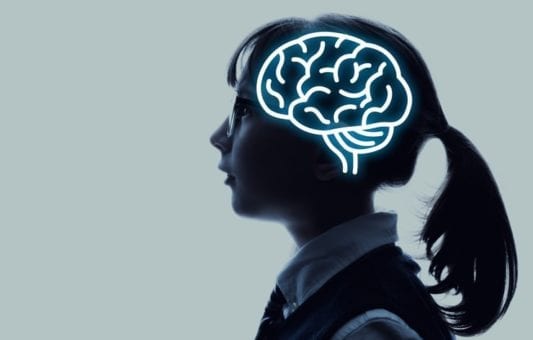Nutritional neuroscience is an emerging discipline that is opening the doors and shedding light that nutritional factors are directly connected with human cognition, behavior, and emotions. Changes in brain signal transmission at the level of a chemical synapse are essential in the development of mental disorders or a change in a neurotransmitter’s chemical structure, or an imbalance at any point in this complex process may affect emotions, moods, thoughts, and behaviors. Mental health status can be a direct result of the interaction of different factors leading to malfunction of certain brain chemicals neurotransmitters which leads to the development of mental illness. Deficiencies in neurotransmitters such as serotonin, dopamine, nor adrenaline, and γ amino butyric acid (GABA) are often associated with depression.
Nutrition can play a key role in the onset as well as the severity and duration of several mental health conditions, such as depression. Many of the easily noticeable food patterns that precede depression are the same as those that occur during the depression, which may include poor appetite, skipping meals, and a lack of dietary variety. The most common mental disorders that are currently prevalent in numerous countries are depression, bipolar disorder, schizophrenia, and obsessive-compulsive disorder (OCD). The dietary intake pattern of the general population in many Asian and American countries reflects that they are often deficient in many nutrients, especially essential vitamins, minerals, and omega-3 fatty acids.
Nutrients that affect mental health status
- Amino Acids
- Amino acids such as tryptophan, tyrosine, histidine, and arginine are used by the brain for the synthesis of various neurotransmitters and neuromodulators
- Deficiency Symptoms:
- Mental: Depression and possible increased aggression
- Physical: Weak immune system, fatigue, dizziness, nausea, water retention
- Carbohydrates
- Glucose- Preferred fuel for brain – the brain derives its energy of blood sugar, obtained from carbohydrates, to perform mental activities
- Deficiency Symptoms:
- Mental: Poor brain functioning-irritability, increased depression, memory loss, lack of concentration
- Physical: Nausea, bad breath, increase in fat percentage of the body, loss of muscle mass, muscle cramps, excessive fatigue and exhaustion, loss of sodium in the body, diarrhea or constipation, frequent headaches, loss of water content in the body
- Fats
- EFA’s makeup cell membranes- Omega 3’s: Thanks to its anti-inflammatory properties and effects on dopamine and serotonin transmission, omega-3 has a role in brain development and functioning, with deficiencies linked to mental health problems. Low levels of circulating Omega-3 EPA and cholesterol are risk factors for impulsive and depressive behaviors.
- Deficiency Symptoms:
- Mental: Mood swings, depressed mood, hyperactivity, anxiety, anger, sleep problems
- Physical: Hair loss, poor wound healing, dry rash, hair depigmentation
- Vitamin B-12
- B-12 promotes fluid intelligence: reasoning, ability to learn, ability for abstract thinking. This vitamin produces the myelin sheath encasing the nerves, which is important because the nerves cannot conduct messages from the brain to the rest of the body efficiently without a healthy myelin sheath.
- Deficiency Symptoms:
- Mental: Agitation, irritability, mood swings, emotional instability, apathy, memory problems, personality changes, trouble concentrating, suspiciousness
- Physical: Anemia, fatigue, yellowish skin tone
- Ascorbic Acid (Vitamin C)
- Vitamin C’s least known and most powerful function may be in preventing and treating depression and anxiety. A deficiency can cause neurological damage so the addition of vitamin C to the diet can improve or reverse symptoms of anxiety, depression and bipolar disorder.
- Deficiency Symptoms:
- Mental: Depressed mood, possible personality changes, and fatigue
- Physical: Bruising, muscle soreness, bleeding skin
- Zinc
- Zinc has a relationship with serotonin receptors and low concentrations of both zinc and serotonin metabolites have been shown to be associated with the development of depression. It also helps in protein synthesis and structure and regulation of gene expression in addition it serves in neurons and glial cells.
- Deficiency Symptoms:
- Physical: Alopecia (baldness), reduced immune function, poor wound healing, hypogeusia (reduced taste sensitivity)
- Mental: depression, irritable, lethargic
- Folic Acid
- Not only is Folic acid important for modulating neurotransmitter rate; this nutrient is part of an enzyme needed for making DNA and new cells, especially red blood cells
- Deficiency Symptoms:
- Mental: changes in mood, irritability
- Physical: Anemia, diarrhea, fatigue, pale skin, poor immune function
References:
- Rao, T. S. S., Asha, M. R., Ramesh, B. N., & Rao, K. S. J. (2008). Understanding nutrition, depression and mental illnesses. Indian Journal of Psychiatry, 50(2), 77–82. https://doi.org/10.4103/0019-5545.42391
- World Health Organization Report (2017) Depression and other common mental disorders global health estimates.
